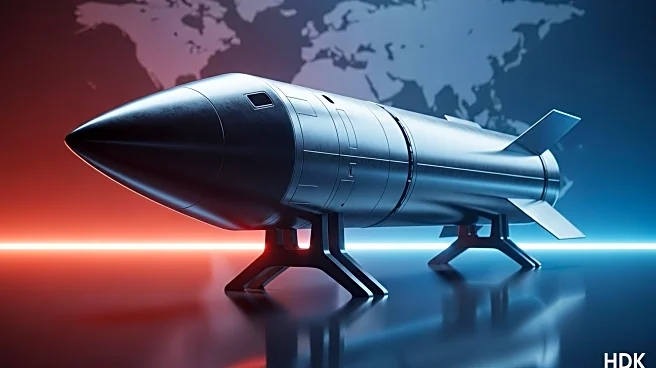What's Happening?
Vice Minister for Foreign Affairs of North Korea, Kim Son Gyong, addressed the United Nations General Assembly, emphasizing that North Korea will not relinquish its nuclear weapons. He stated that these weapons are essential for maintaining a balance of power with South Korea. Kim criticized U.S.-led military exercises with South Korea and Japan, describing them as aggressive threats. Despite international pressure, North Korea's nuclear program remains a constitutional priority. Kim's speech marked the first appearance of a senior North Korean diplomat at the U.N. since 2018, highlighting ongoing tensions on the Korean Peninsula.
Why It's Important?
North Korea's steadfast commitment to its nuclear arsenal poses significant challenges to regional stability and international diplomatic efforts. The refusal to disarm complicates relations with South Korea, which seeks peaceful coexistence. The U.S. and its allies view North Korea's nuclear capabilities as a threat, prompting military exercises in response. This situation underscores the difficulty in achieving denuclearization and peace in the region. The potential for renewed talks between President Trump and Kim Jong Un could influence future diplomatic strategies.
What's Next?
President Trump is expected to visit South Korea for the Asia-Pacific Economic Cooperation summit, raising speculation about a possible meeting with Kim Jong Un. This visit could open avenues for dialogue, although North Korea's stance on nuclear weapons remains unchanged. The international community continues to monitor developments, hoping for diplomatic breakthroughs that could ease tensions and promote stability on the Korean Peninsula.










